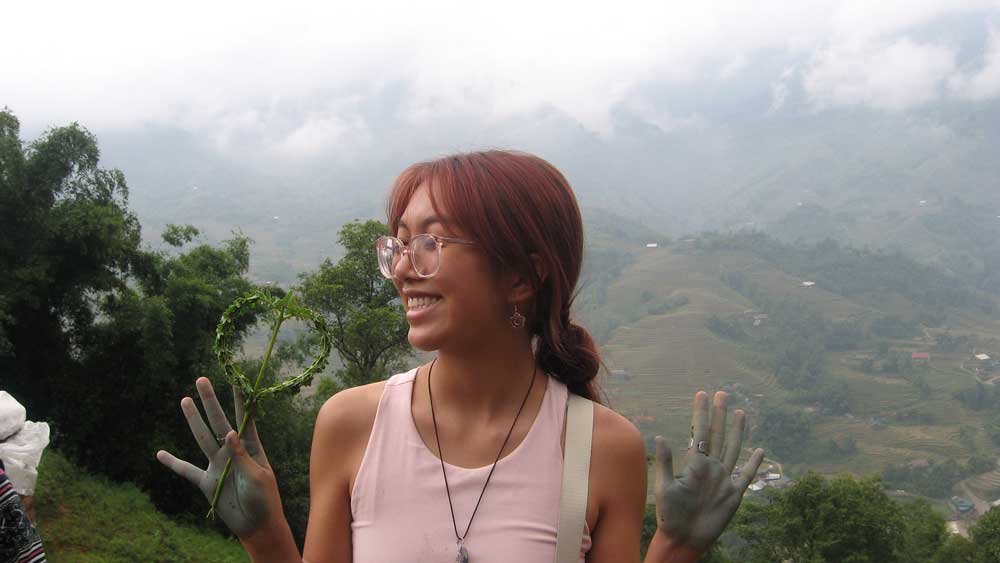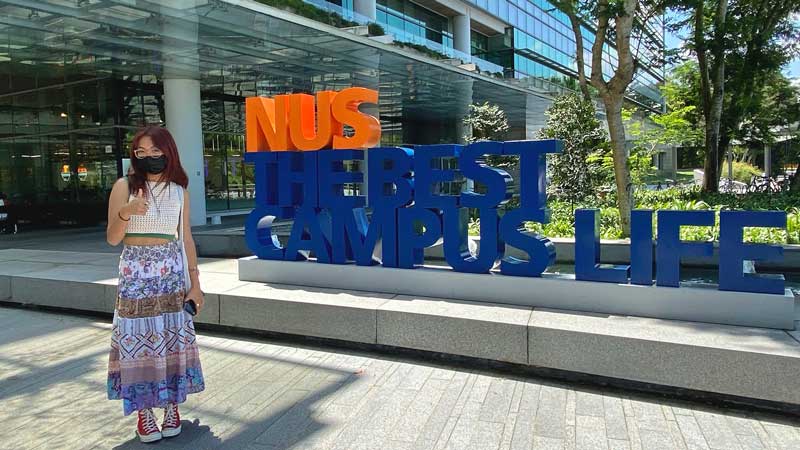
When Mia Nguyen stepped off the plane in Vietnam during her mid-semester break during her study abroad trip, she was struck with the overwhelming sensation of standing in a place both foreign and familiar.
Nguyen, half Vietnamese and half Filipino, is a senior architectural engineering major in the Department of Multidisciplinary Engineering with a minor in film studies at Texas A&M University. She studied abroad last semester through the All Major Exchanges program at the National University of Singapore (NUS) in the Republic of Singapore and also visited Vietnam.
She shares what it meant to her to travel throughout Southeast Asia.
Q: Why did you choose multidisciplinary engineering?
A: When I went through the Entry to a Major process, I was excited at the idea of a major that blended the different subjects I both thrived in and found interesting. Physics, design and sustainability exist at the core of architectural engineering. Expanding my knowledge on these topics has been very fulfilling.
Q: Before you left for your trip, what excited you about studying abroad?
A: The number of opportunities that studying abroad had to offer — the chance to see my major from an entirely different point of view, travel throughout Southeast Asia and meet people from new places. Even the most mundane days in Singapore allowed me to appreciate the opportunity to be there.
Q: How did your major affect your study abroad experience?
A: As an architectural engineering major, it's important to familiarize yourself with different engineering software programs. In my sophomore year, I was introduced to Revit, a building information modeling software tool, and AutoCAD, a design and drafting software program. That helped me gain the essential skills I needed thus far.
In Singapore, however, my engineering classes required me to be proficient in unfamiliar programs such as ETABS and Microsoft Project. While I had to spend extra time learning those new applications to keep up with my local classmates, I'm very grateful that this allowed me to expand my repertoire.

Q: What was your favorite experience while studying abroad?
A: During my mid-semester break, I visited Vietnam for the first time with some friends who were also on exchange. As someone who is half-Vietnamese, it was mind-boggling to be in a place where things felt simultaneously familiar and foreign. The food and language reminded me of my Vietnamese American friends and family. At the same time, the cities and rice villages I visited differed from anything I had ever experienced. Vietnam was hands-down my favorite country I had the privilege of seeing, and someday I hope to go back with my dad, who hasn't been back since 1975.
Q: What did you learn or discover about yourself during this process?
A: The biggest takeaway from my time abroad is that I want to continue moving to new places after I graduate. Long-term periods at different firms and locations are better in the industry I'll eventually work in. However, it would be worth it to continue being able to have new experiences in different places, whether that be in various states or various countries. Living in Singapore made me reorganize my priorities for my future, and I'm glad to have found that clarity before I enter the workforce.
Q: How did this program help you as a multidisciplinary student?
A: Because multidisciplinary engineering is a small but growing department, sometimes it can be challenging to meet new people if you're taking the same classes with the same group. Participating in this program allowed me to establish new connections with project groupmates, professors and even other exchange students.
Q: What advice would you give another student considering studying abroad?
A: Singapore can be affordable if you make it affordable. A lot of people have this idea that Singapore is ridiculously expensive, and sometimes it is, but the side of it that no one sees is how well it takes care of its citizens of every economic class. If expenses deter someone from picking NUS or Singapore in general, I would assure them that it is possible to make the most out of their experience on a budget.
While I missed my friends in College Station, I now miss everything about Singapore — from the local dialect, the food and even the public transportation. If you have the time and funds to study abroad, do it! It's a once-in-a-lifetime experience that gives you a different perspective on your education and future.